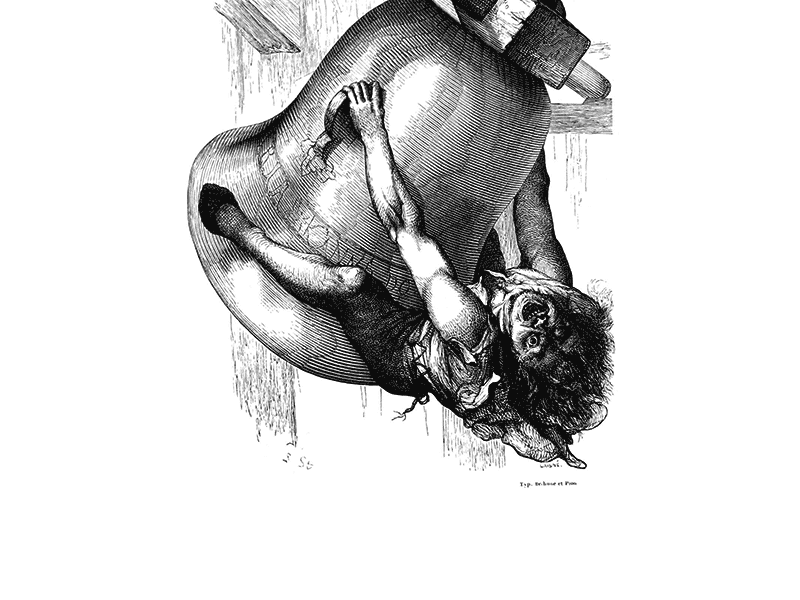Most of the descriptions about deafness were known from the tells of writers.
The cultural attitudes about deafness were largely mirrored by the literature of the time.
In many of the older classic novels, deaf people were often portrayed negatively by writers who viewed them as deceived, corrupted, or devious.
Thanks to linguistics and pedagogical studies, contemporary authors are more and more informed and represent deafness in a more balanced light.
In European literature we would like to highlight here three main deaf characters: Duncan Campbell (1720), Quasimodo of “the Hunchback of Notre-Dame” (1831), the old deaf man in a tell of Hemingway (1927).
“The History of The Life and Adventures of Mr. Duncan Campbell” is claimed to be written by Daniel Defoe, but it’s improbable, especially because the book was published by an enemy of Defoe, Edmund Curll. Duncan Campbell, who lived between the XVII and the XVIII centuries, was a Scottish deaf man. He stated to have magical fortune-telling powers, which attracted a great attention in the environments he visited, in particular the noble circles of London.
In 1831, we move to France where Victor Hugo writes “the Hunchback of Notre-Dame” in which he describes Quasimodo, the bell ringer of the most famous cathedral in Paris, as a deformed being of monstrous ugliness, he is one-eyed, lame and (following his prolonged proximity to the bells) deaf. Quasimodo is the son of a Romani family (in the novel called égyptienne or ‘gypsies’) who abandoned him at four years old in Notre-Dame due to his deformity. Here he was adopted by the archdeacon Claude Frollo, who gave him a name (Quasimodo) and made him the bell ringer of the cathedral, converting him to the Catholic religion.
The next century, precisely in 1927, Ernest Hemingway wrote a short story “A Clean Well-Lighted Place” that has a silent protagonist, an old deaf man. In the story nothing happens, two waiters would like to close the café, but they have to wait for the last client: a deaf man who has recently attempted suicide. The moral meaning of the tale comes from the thought of the second waiter who feels sympathetic to the human need for a clean, well-lighted place like the café, an outpost in the darkness.
These three characters are interesting because each one shows a different reaction to the situation they are living. We don’t know the reasons of their deafness, apart from Quasimodo: his own person is the result of “external” choices, the deafness included which was caused by the cathedral’s bells.

